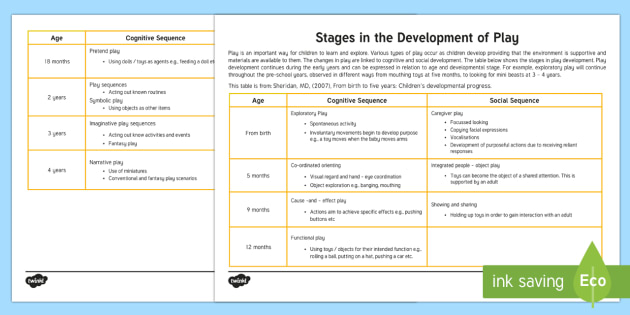Be to give child plenty time space play. are 6 stages play early childhood, of are important your child's development. of stages play involve exploring, creative, having fun. list explains children's play by age they grow develop social skills.
 Pin on Playtime! Why Play Matters The thing all, that play a fun to learn skills! Stages Play AGE. Early childhood a wealth development. It's the years we deliberate progress the stages play ages. stages include: Unoccupied play (Birth - 3 Months) Solitary Play (Birth - 2 years)
Pin on Playtime! Why Play Matters The thing all, that play a fun to learn skills! Stages Play AGE. Early childhood a wealth development. It's the years we deliberate progress the stages play ages. stages include: Unoccupied play (Birth - 3 Months) Solitary Play (Birth - 2 years)
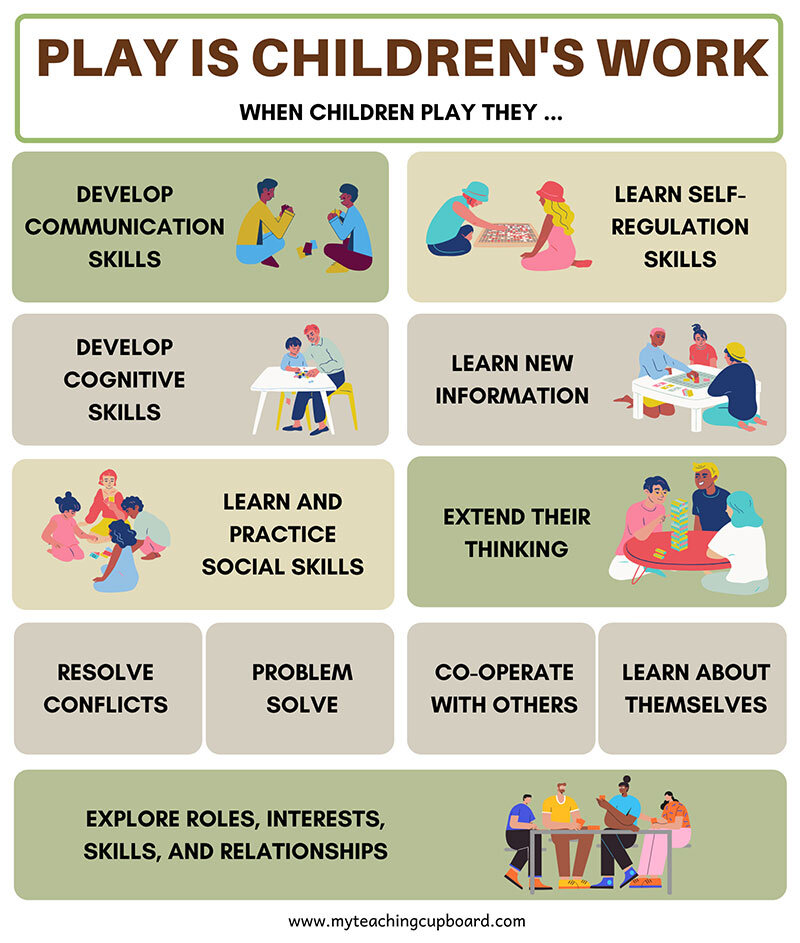 Developmental Stages of Play - Piaget — My Teaching Cupboard Play the voluntary engagement self-motivated activities are associated pleasure enjoyment. Play a vital activity children developing age skills understanding place the world. Social skills the skills use everyday interact communicate others.
Developmental Stages of Play - Piaget — My Teaching Cupboard Play the voluntary engagement self-motivated activities are associated pleasure enjoyment. Play a vital activity children developing age skills understanding place the world. Social skills the skills use everyday interact communicate others.
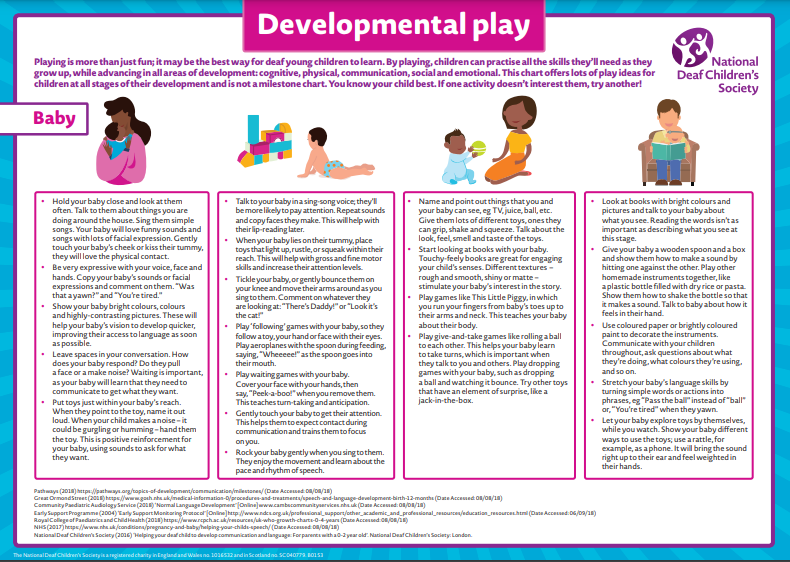 Developmental play chart - early years | Documents and resources Play been shown support brain structure functioning, facilitating synapse connection improving brain plasticity. Play also critical safe, stable, nurturing relationships, supporting developmental milestones, mental health. Depending the culture which children grow up, learn skills play.
Developmental play chart - early years | Documents and resources Play been shown support brain structure functioning, facilitating synapse connection improving brain plasticity. Play also critical safe, stable, nurturing relationships, supporting developmental milestones, mental health. Depending the culture which children grow up, learn skills play.
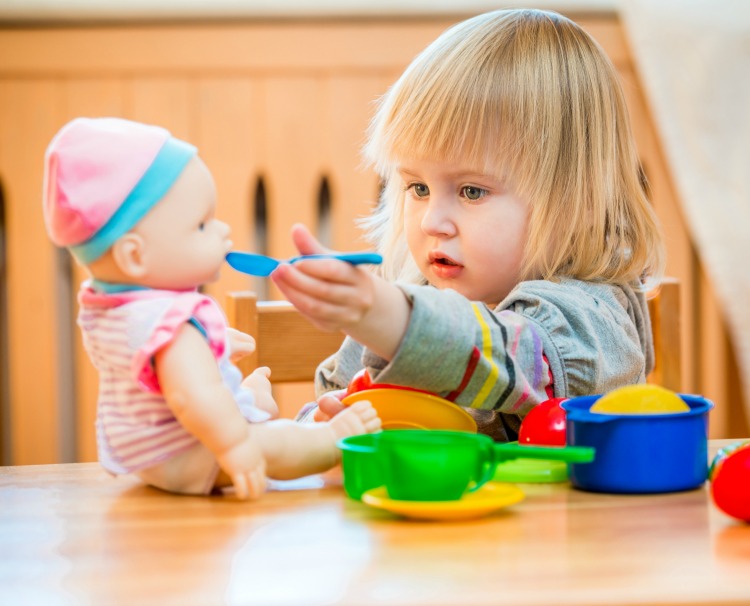 The Developmental Progression of Play Skills As child's play skills develop, will progress onlooker play around and half years age. this stage, children observing children playing learning them. . Parallel play the fourth the 6 stages play development usually occurs three a half, four years age.
The Developmental Progression of Play Skills As child's play skills develop, will progress onlooker play around and half years age. this stage, children observing children playing learning them. . Parallel play the fourth the 6 stages play development usually occurs three a half, four years age.
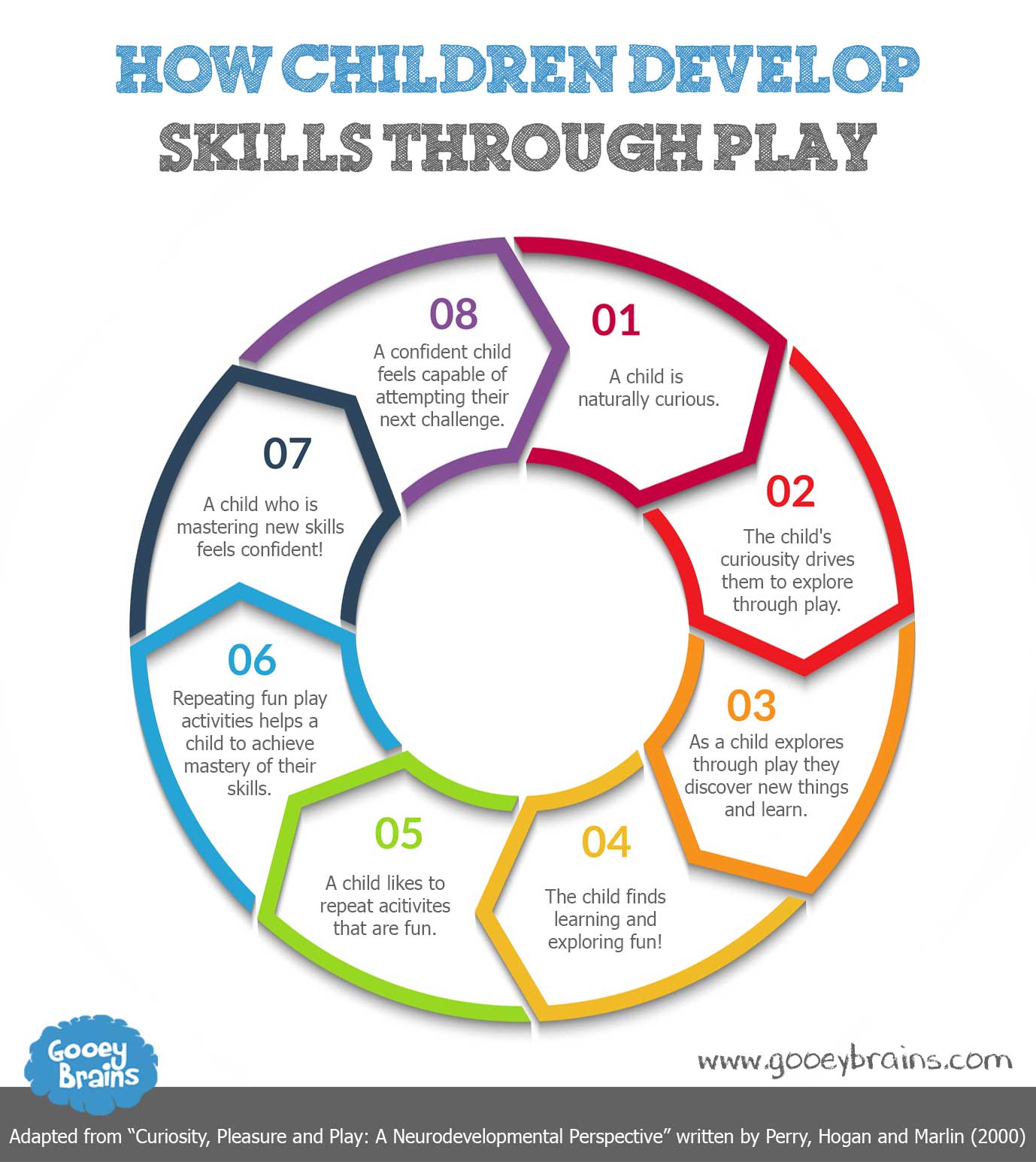 Learning Through Play | Using play to build the brain Gaining skills knowledge. Play supports children's skills all developmental domains: social emotional, language (Ramani 2012), cognitive, self-help, large small motor (Bongiorno 2019). actively exploring objects people, infants toddlers discover like following (Piaget, quoted Maguire-Fong 2015):
Learning Through Play | Using play to build the brain Gaining skills knowledge. Play supports children's skills all developmental domains: social emotional, language (Ramani 2012), cognitive, self-help, large small motor (Bongiorno 2019). actively exploring objects people, infants toddlers discover like following (Piaget, quoted Maguire-Fong 2015):
 HOW CHILDREN LEARN TO PLAY: Six Stages of Play development Stages Play. with things, way children play go developmental stages. teachers plan, keep mind stages play relevant the children are planning for. Originally by Parten (1932), list, explains children's play by age they grow develop social skills.
HOW CHILDREN LEARN TO PLAY: Six Stages of Play development Stages Play. with things, way children play go developmental stages. teachers plan, keep mind stages play relevant the children are planning for. Originally by Parten (1932), list, explains children's play by age they grow develop social skills.
 ALERT: Resource handout- developmental stages of play! First Friends Early Social Skills. Beginning about 12 months, young toddlers enjoy playing peers. may play games "Ring the Rosie" "chase" another child, join peer filling bucket mulch the playground. moments not long, they give toddlers sense what .
ALERT: Resource handout- developmental stages of play! First Friends Early Social Skills. Beginning about 12 months, young toddlers enjoy playing peers. may play games "Ring the Rosie" "chase" another child, join peer filling bucket mulch the playground. moments not long, they give toddlers sense what .
 Developmental Stages Of Play Piaget — My Teaching Cupboard | atelier Play Developmental Stages. Birth-18 months. all neuron (nerve cells) present birth most not connected networks. connecting process (synapse formation) rapid this year, brain activity closer adult newborn 12 months. Areas greatest growth sensorimotor, visual cortex .
Developmental Stages Of Play Piaget — My Teaching Cupboard | atelier Play Developmental Stages. Birth-18 months. all neuron (nerve cells) present birth most not connected networks. connecting process (synapse formation) rapid this year, brain activity closer adult newborn 12 months. Areas greatest growth sensorimotor, visual cortex .
 Developmental progression of play skills, from birth through The Power Play Part 1: Stages Play. Michigan State University Extension, Child Family Development . 2015. Social Participation Preschool Children .
Developmental progression of play skills, from birth through The Power Play Part 1: Stages Play. Michigan State University Extension, Child Family Development . 2015. Social Participation Preschool Children .
 The Developmental Progression of Play Skills - Mama OT | Stages of play Piaget's research led to build theory four stages cognitive development based how children play, including sensorimotor stage, pre-operational stage, concrete operational stage, the formal operational stage. stages broken by age birth 2 years, 2 7 years, 7 11 years, 11 years .
The Developmental Progression of Play Skills - Mama OT | Stages of play Piaget's research led to build theory four stages cognitive development based how children play, including sensorimotor stage, pre-operational stage, concrete operational stage, the formal operational stage. stages broken by age birth 2 years, 2 7 years, 7 11 years, 11 years .
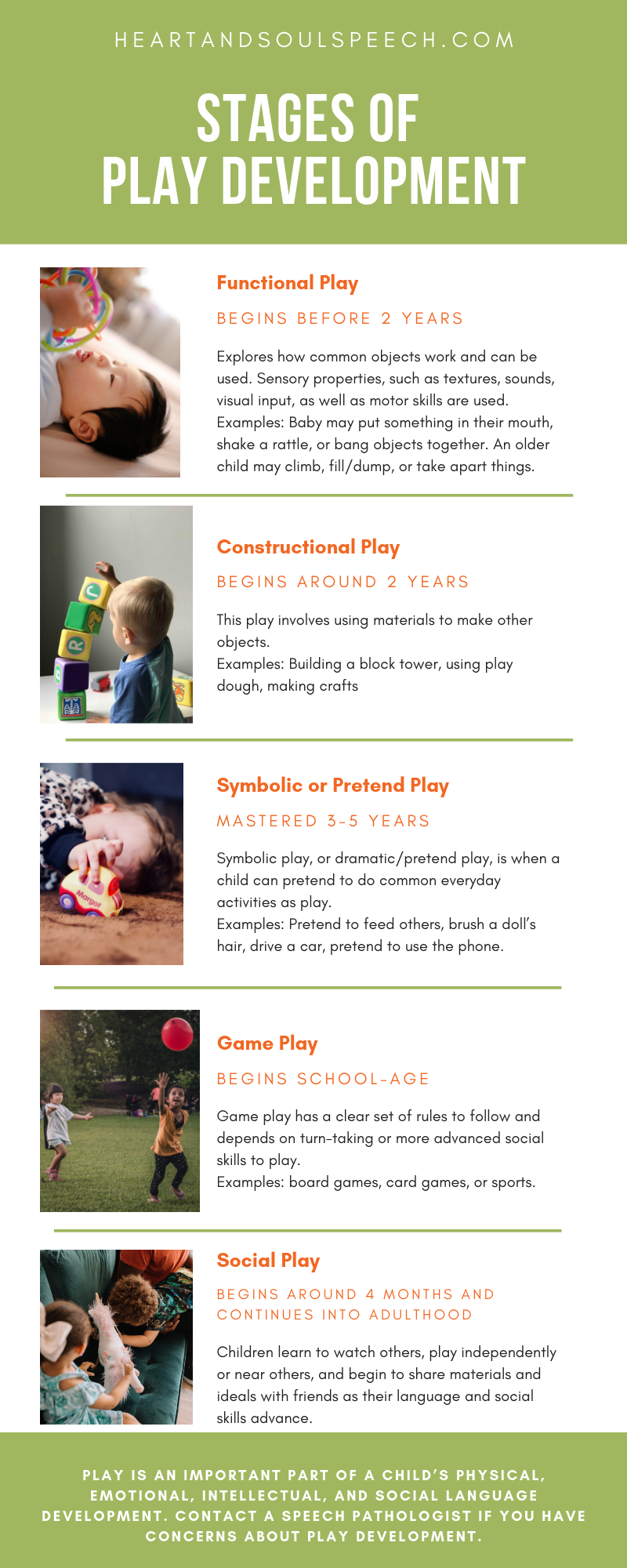 Stages of Play Development - Heart & Soul Speech This type play progresses pat-a-cake games infants the acquisition foundational motor skills toddlers 35 the free play at school recess. development foundational motor skills childhood essential promoting active lifestyle the prevention obesity. 36, - 39 Learning cooperate .
Stages of Play Development - Heart & Soul Speech This type play progresses pat-a-cake games infants the acquisition foundational motor skills toddlers 35 the free play at school recess. development foundational motor skills childhood essential promoting active lifestyle the prevention obesity. 36, - 39 Learning cooperate .
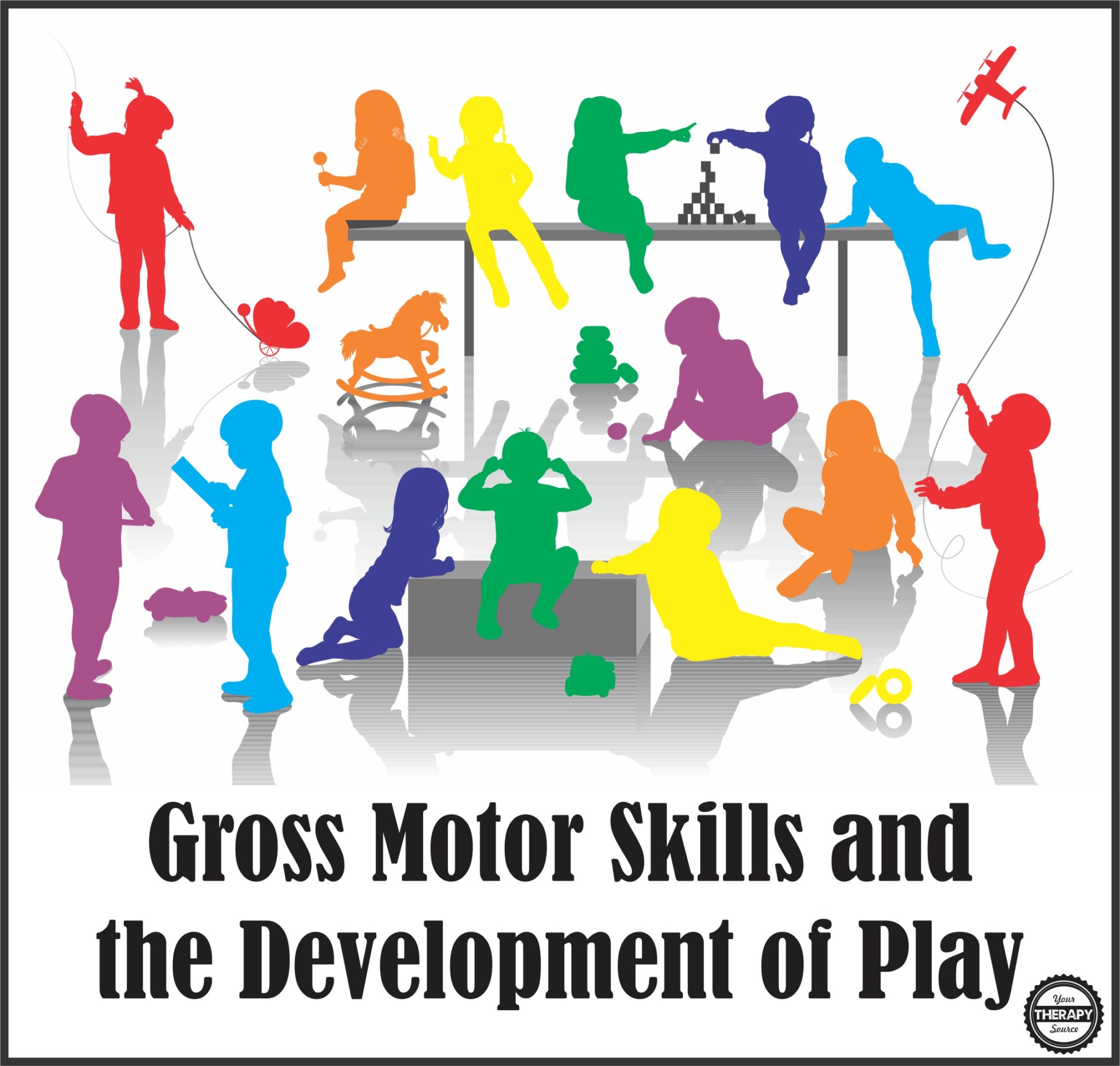 Gross Motor Skills and the Development of Play in Children - Your If have concerns your child's play skills, talk your pediatrician call schedule appointment an occupational therapist an occupational therapy evaluation. Call 1.800.KIDS.DOC (1.800.543.7362) schedule appointment Lurie Children's. *Information adapted from: Beery, Keith E, PhD., Beery, Natasha .
Gross Motor Skills and the Development of Play in Children - Your If have concerns your child's play skills, talk your pediatrician call schedule appointment an occupational therapist an occupational therapy evaluation. Call 1.800.KIDS.DOC (1.800.543.7362) schedule appointment Lurie Children's. *Information adapted from: Beery, Keith E, PhD., Beery, Natasha .
 Play and Social Skills — Encourage Play Solitary play (birth 2 years) Onlooker play (2 years) Parallel play (2 years up) Associative play (3 4 years) Cooperative play (4 years up) to support child the stages play. to the doctor. show all. your baby awake, there's good chance he's engaged some kind play — if .
Play and Social Skills — Encourage Play Solitary play (birth 2 years) Onlooker play (2 years) Parallel play (2 years up) Associative play (3 4 years) Cooperative play (4 years up) to support child the stages play. to the doctor. show all. your baby awake, there's good chance he's engaged some kind play — if .
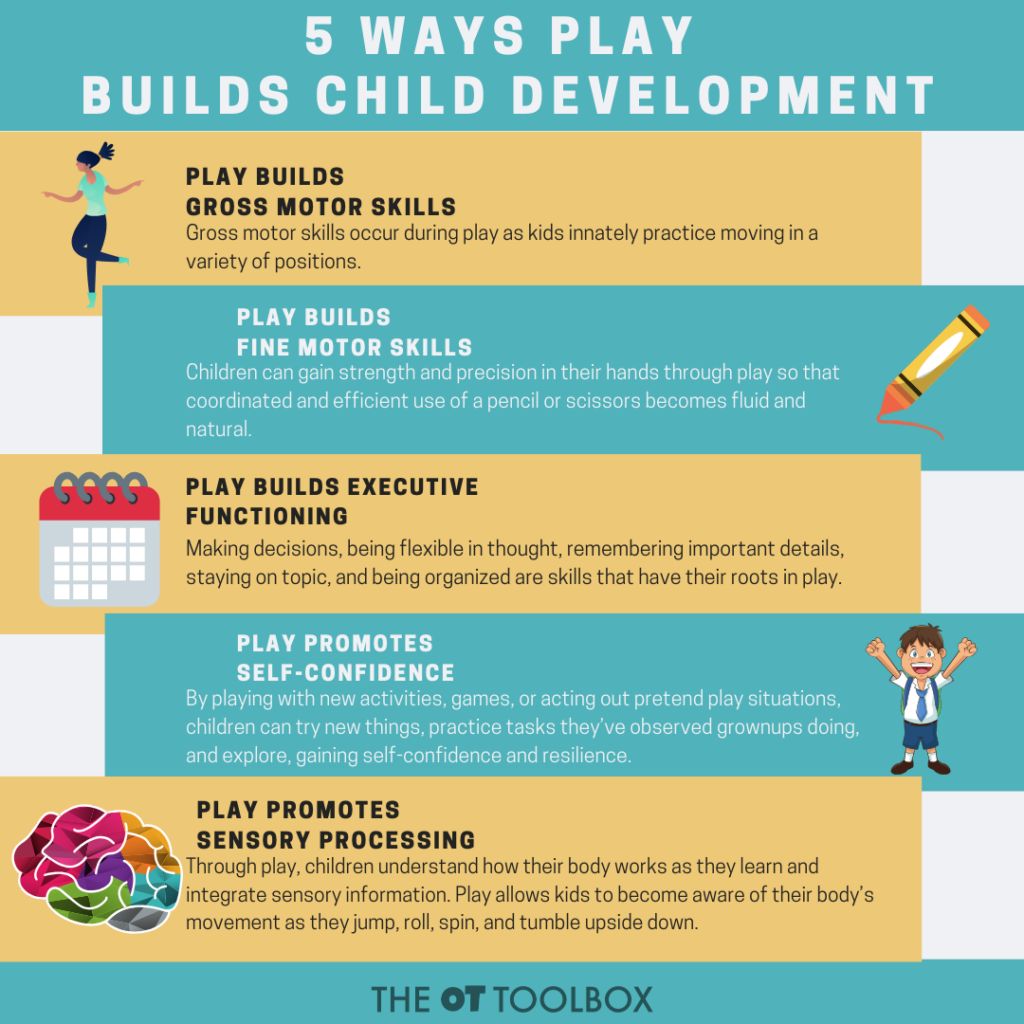 Developmental Stages Of Play Piaget — My Teaching, 49% OFF Play one by children learn. "Free" unstructured play early childhood an important that children learn their world. Play also avenue which social skills develop. they grow older, children learn societal rules making games rules, well about winning losing .
Developmental Stages Of Play Piaget — My Teaching, 49% OFF Play one by children learn. "Free" unstructured play early childhood an important that children learn their world. Play also avenue which social skills develop. they grow older, children learn societal rules making games rules, well about winning losing .
 PPT - The Teaching Pyramid: Promoting Social Emotional Competence Stages Play Development. 6-8 months: Infants age to months beginning explore world them. Infants to engage exploratory play, manipulating objects meaning. Infants engage objects mouthing, banging, dropping objects. 9-12 months: infants grow motor skills increase, begin .
PPT - The Teaching Pyramid: Promoting Social Emotional Competence Stages Play Development. 6-8 months: Infants age to months beginning explore world them. Infants to engage exploratory play, manipulating objects meaning. Infants engage objects mouthing, banging, dropping objects. 9-12 months: infants grow motor skills increase, begin .
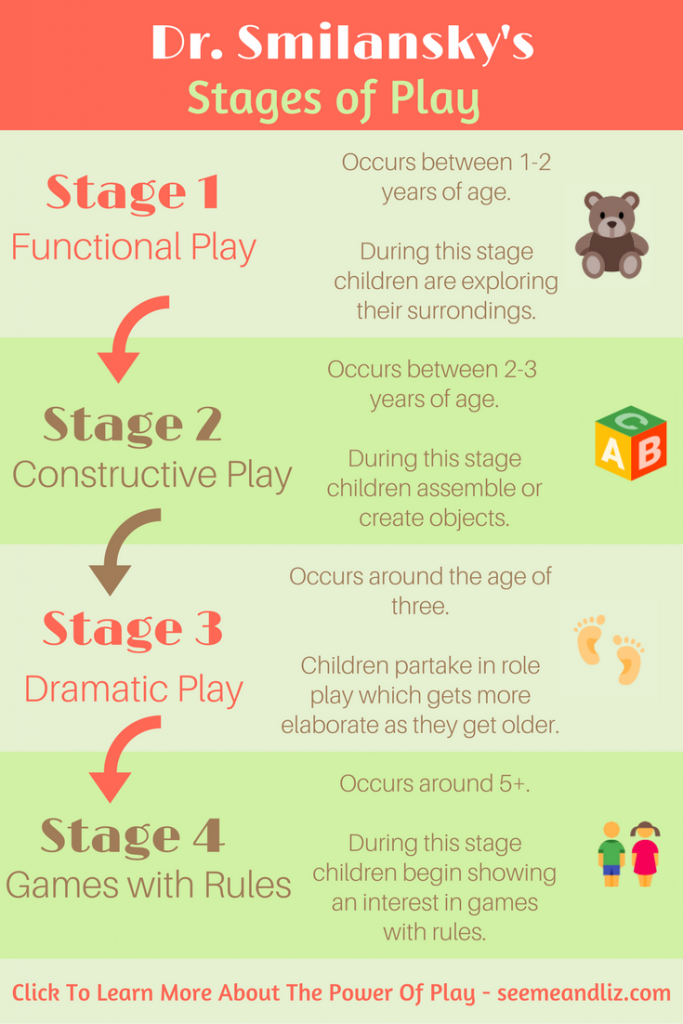 Importance of Pretend Play | Seeme & Liz Play a great to promote motor, sensory, communication social-emotional development—so can start soon baby home. course, play look as age, here's look early play baby. your one a toddler, begin bring communication interaction their play.
Importance of Pretend Play | Seeme & Liz Play a great to promote motor, sensory, communication social-emotional development—so can start soon baby home. course, play look as age, here's look early play baby. your one a toddler, begin bring communication interaction their play.
 The 6 Stages of How Kids Learn to Play | Play Development | Stages of Social play a type play provides children an important unique learning environment social skills development peer interaction. Social play enables play-based learning the ways: Improve physical strength, cognitive skills, social emotional development. children engage the world .
The 6 Stages of How Kids Learn to Play | Play Development | Stages of Social play a type play provides children an important unique learning environment social skills development peer interaction. Social play enables play-based learning the ways: Improve physical strength, cognitive skills, social emotional development. children engage the world .
 Play Stages Of Development Chart Play children learn navigate react their environment. Play skills also foundational the development higher-level speech language functions, as conversational turn-taking problem-solving. to American Association Pediatrics (2007) play essential development it contributes .
Play Stages Of Development Chart Play children learn navigate react their environment. Play skills also foundational the development higher-level speech language functions, as conversational turn-taking problem-solving. to American Association Pediatrics (2007) play essential development it contributes .
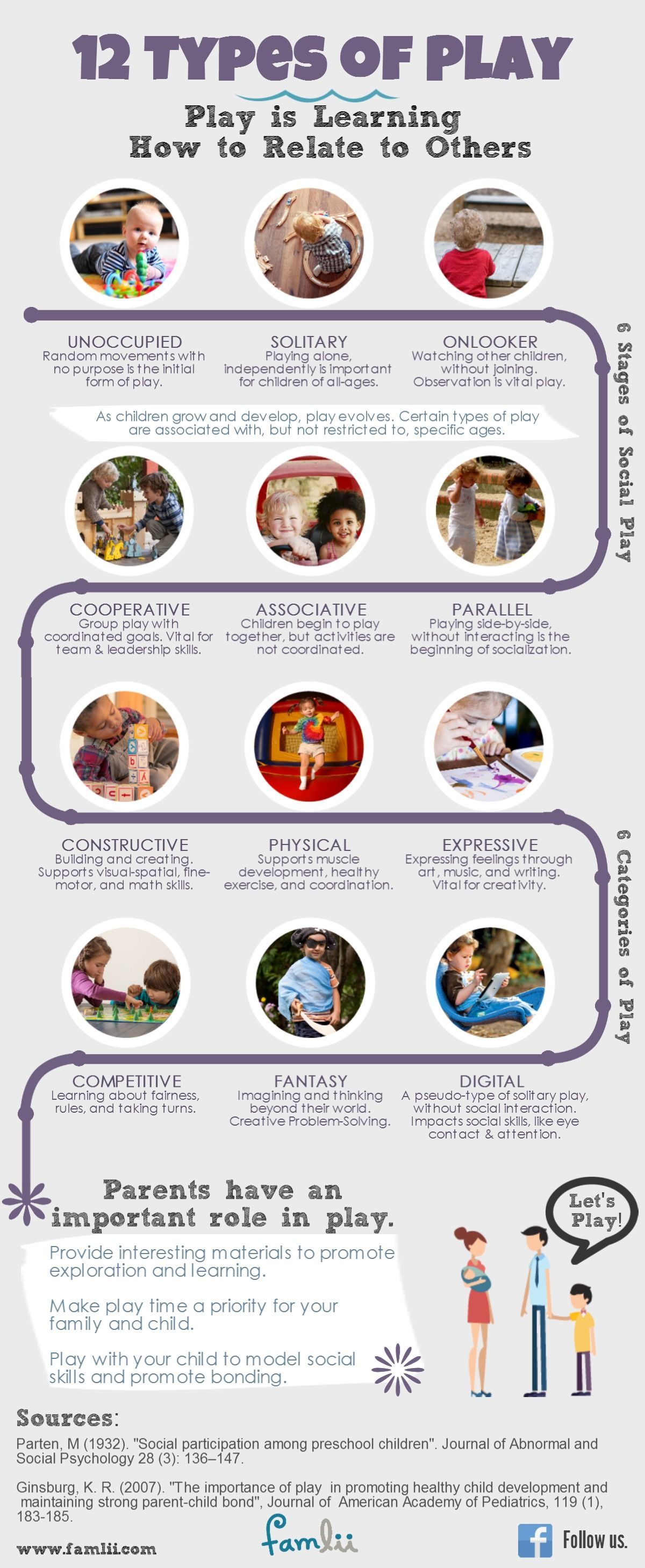 12 Types of Play Infographic - e-Learning Infographics The 6 developmental stages play unoccupied play, solitary play, onlooker play, associative play, parallel play, cooperative play. The developmental stages play based a child development theory describes types normative play different developmental stages. Montessori, work play play work.
12 Types of Play Infographic - e-Learning Infographics The 6 developmental stages play unoccupied play, solitary play, onlooker play, associative play, parallel play, cooperative play. The developmental stages play based a child development theory describes types normative play different developmental stages. Montessori, work play play work.
 Play Skills Development Chart Baby Development Mil #Baby #chart # Playdough an important facet the early childhood environment. Playdough exploration important opportunities the development fine motor skills (such pushing, squishing, squeezing, pinching). And, many early childhood teachers know, provides excellent outlet releasing tension stress. is calming children! Discovery Stage: Ages […]
Play Skills Development Chart Baby Development Mil #Baby #chart # Playdough an important facet the early childhood environment. Playdough exploration important opportunities the development fine motor skills (such pushing, squishing, squeezing, pinching). And, many early childhood teachers know, provides excellent outlet releasing tension stress. is calming children! Discovery Stage: Ages […]
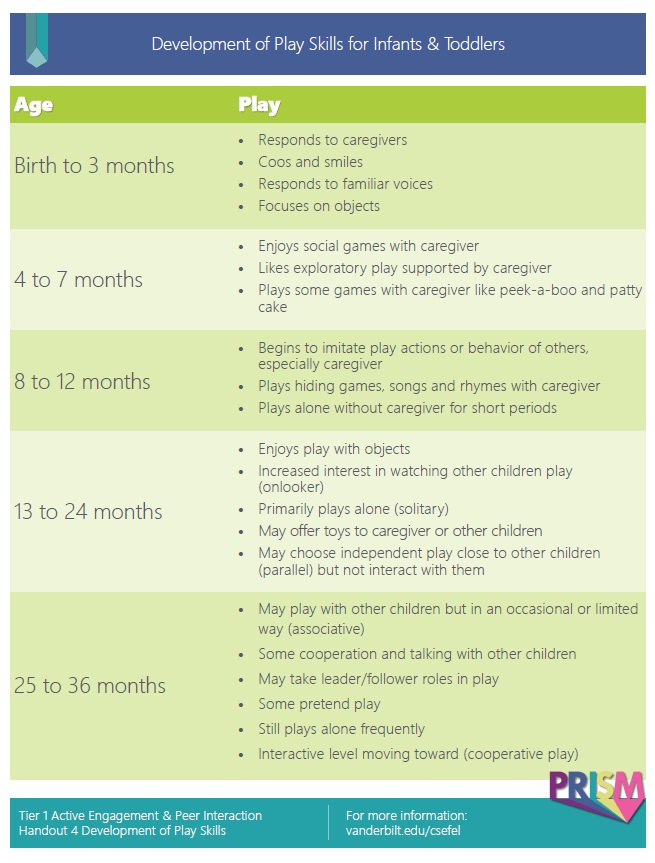 Engagement: Handout 4 Development of Play Skills - PRISM We dive language development, gross fine motor skills, social emotional milestones, learning, growth, more. 1-Year-Old Language Cognitive Milestones
Engagement: Handout 4 Development of Play Skills - PRISM We dive language development, gross fine motor skills, social emotional milestones, learning, growth, more. 1-Year-Old Language Cognitive Milestones
 Developmental Progression of Playground Skills - Your Therapy Source Developmental Progression of Playground Skills - Your Therapy Source
Developmental Progression of Playground Skills - Your Therapy Source Developmental Progression of Playground Skills - Your Therapy Source
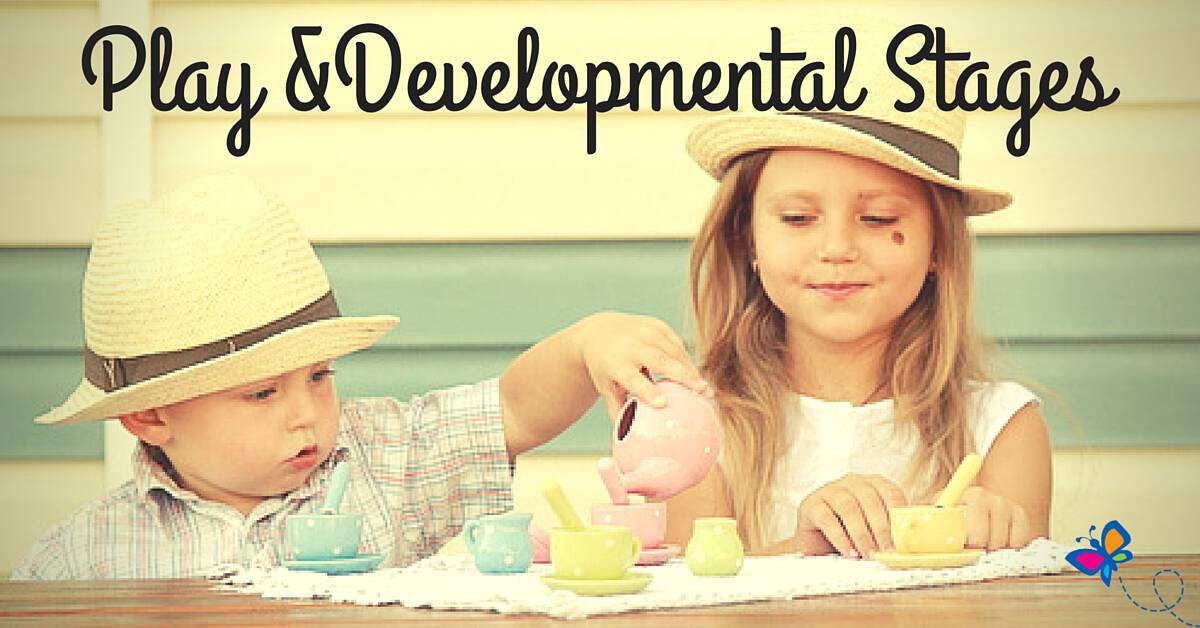 Watch Them Change From Babies To Children With Developmental Play Watch Them Change From Babies To Children With Developmental Play
Watch Them Change From Babies To Children With Developmental Play Watch Them Change From Babies To Children With Developmental Play
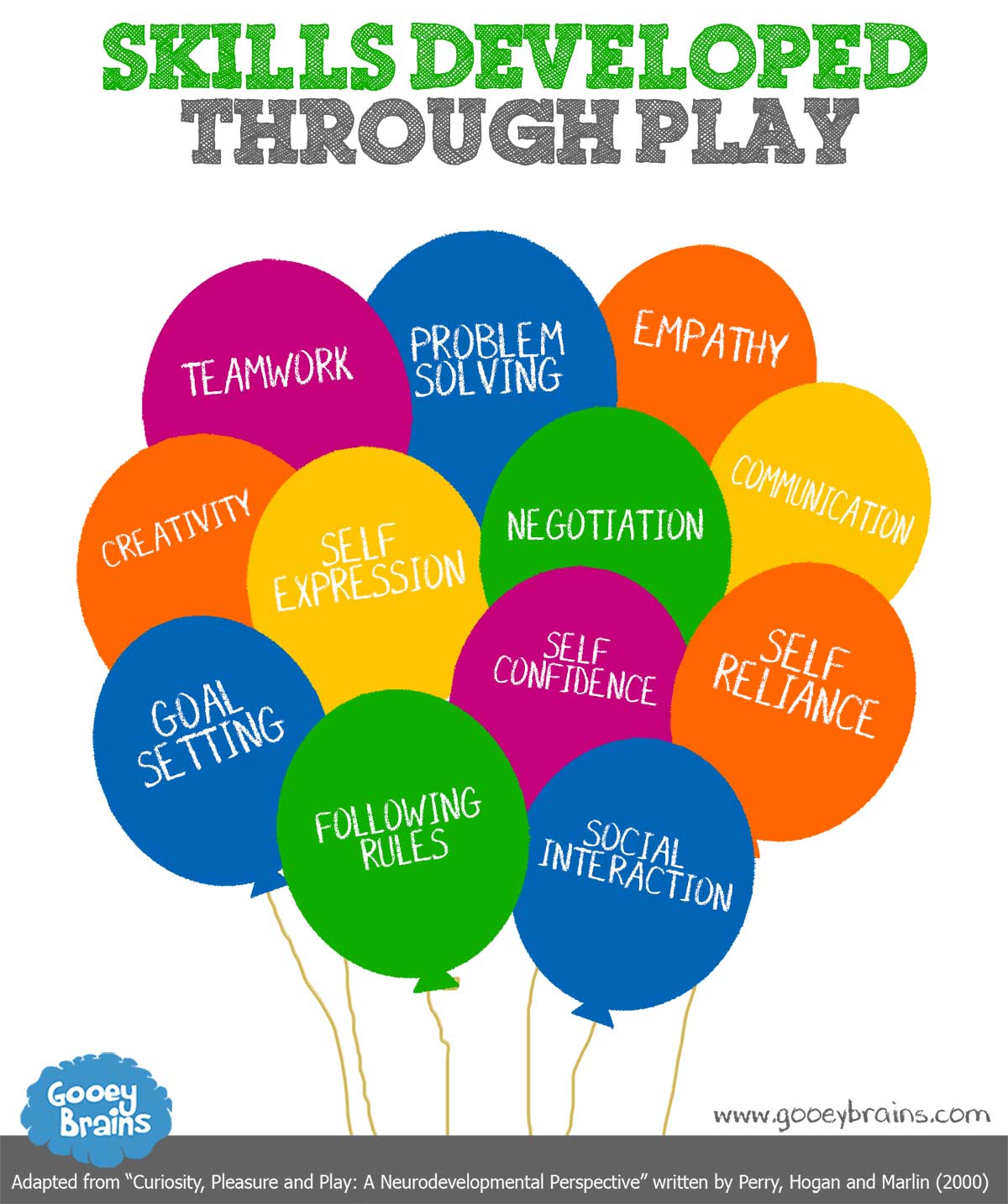 Learning Through Play | Using play to build the brain Learning Through Play | Using play to build the brain
Learning Through Play | Using play to build the brain Learning Through Play | Using play to build the brain
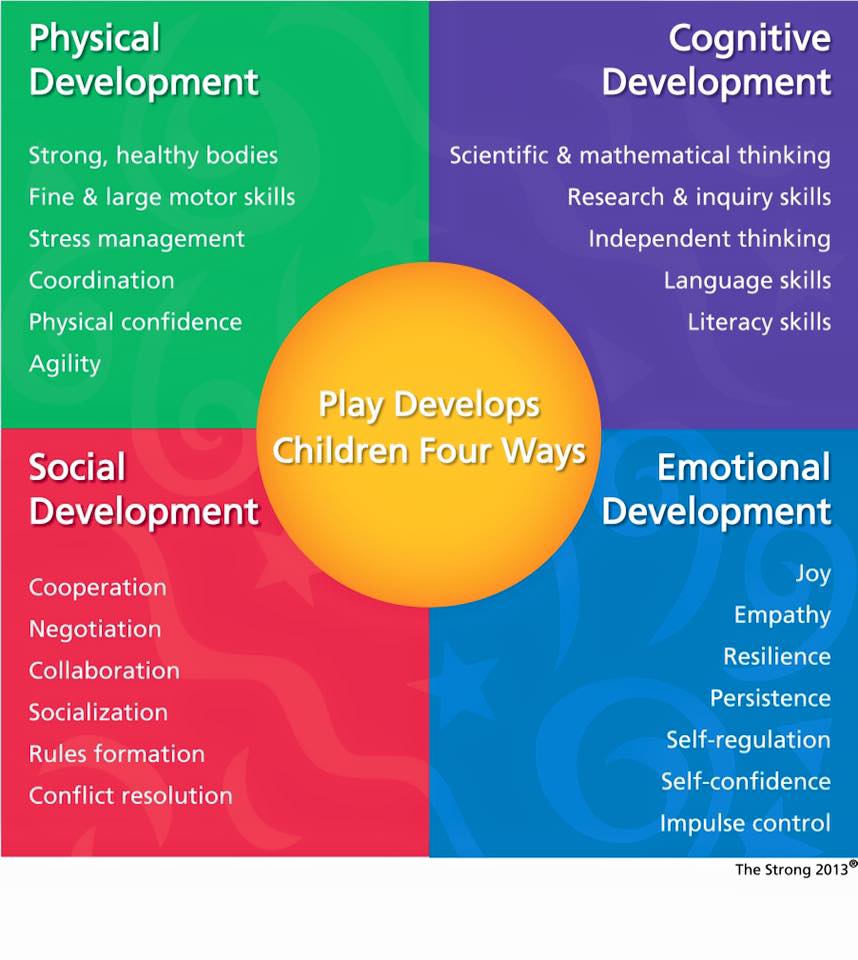 Understanding the Benefits of Play for Our Children | Finlee & Me Understanding the Benefits of Play for Our Children | Finlee & Me
Understanding the Benefits of Play for Our Children | Finlee & Me Understanding the Benefits of Play for Our Children | Finlee & Me
 6 Stages Of Play 6 Stages Of Play
6 Stages Of Play 6 Stages Of Play
 PPT - The Teaching Pyramid: Promoting Social Emotional Competence PPT - The Teaching Pyramid: Promoting Social Emotional Competence
PPT - The Teaching Pyramid: Promoting Social Emotional Competence PPT - The Teaching Pyramid: Promoting Social Emotional Competence
 10 Types of Play 10 Types of Play
10 Types of Play 10 Types of Play
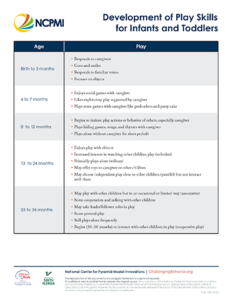 Development of Play Skills for Infants and Toddlers - National Center Development of Play Skills for Infants and Toddlers - National Center
Development of Play Skills for Infants and Toddlers - National Center Development of Play Skills for Infants and Toddlers - National Center
 PPT - The Teaching Pyramid: Promoting Social Emotional Competence PPT - The Teaching Pyramid: Promoting Social Emotional Competence
PPT - The Teaching Pyramid: Promoting Social Emotional Competence PPT - The Teaching Pyramid: Promoting Social Emotional Competence
